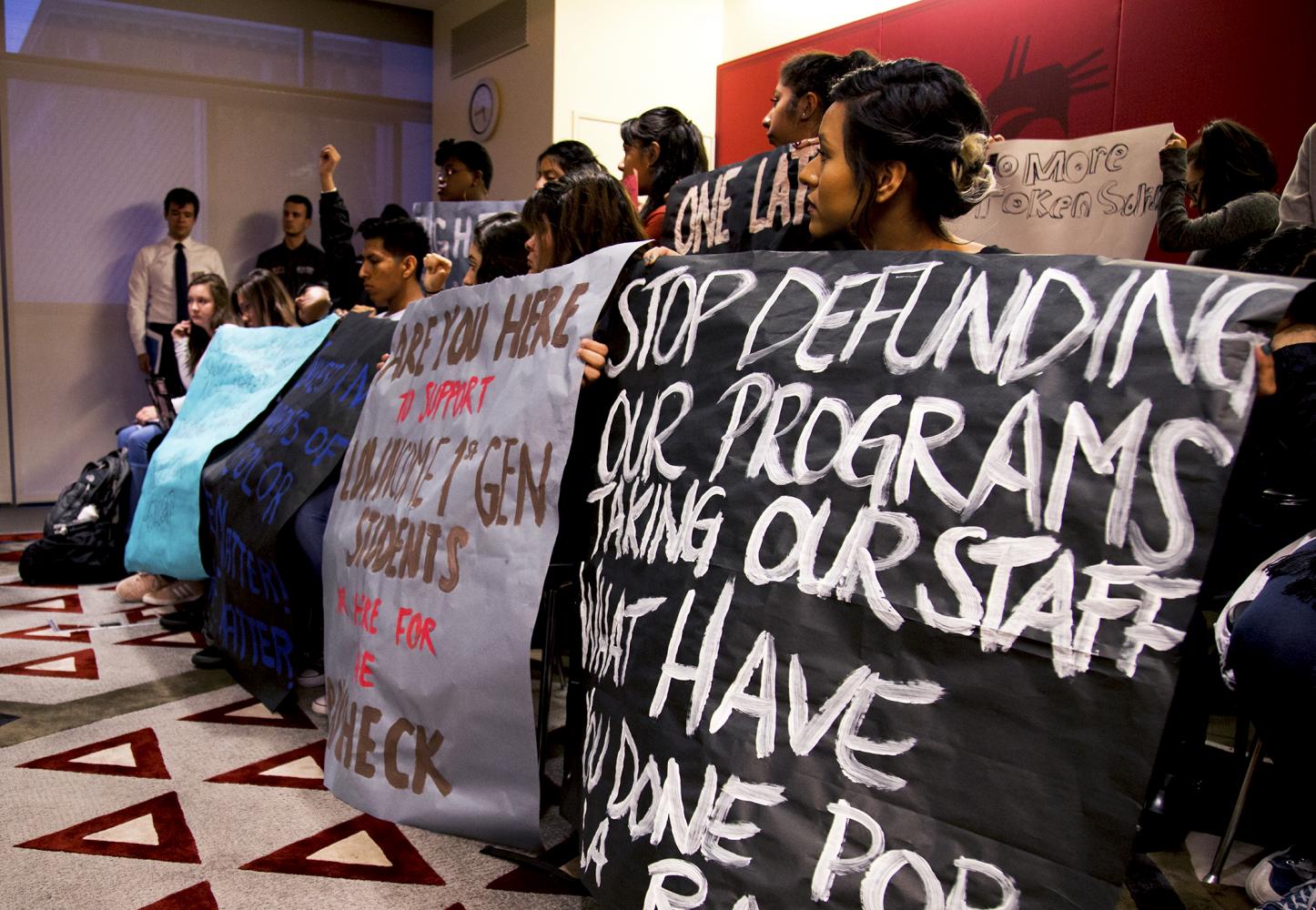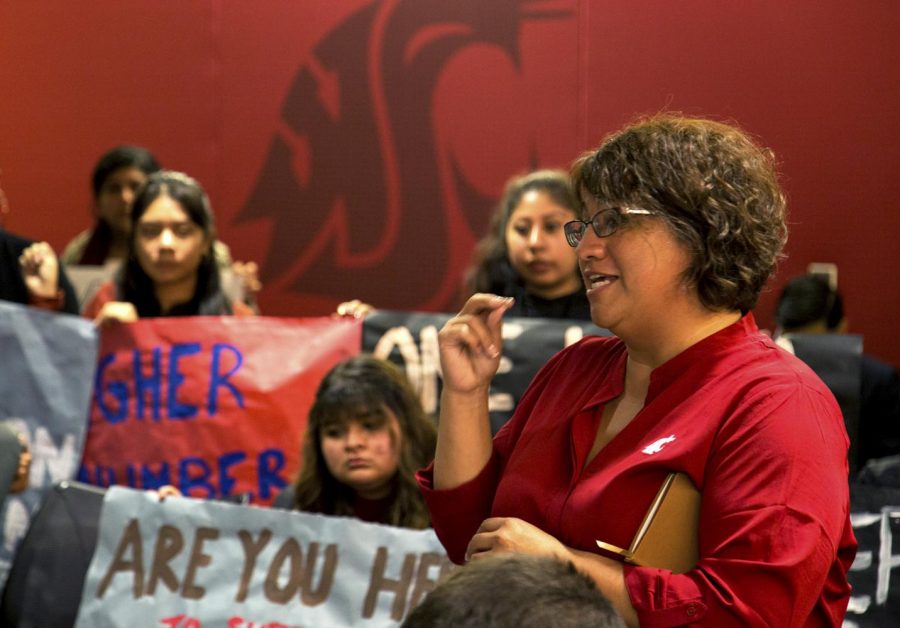Multicultural programs to face budget cuts
Retention counselors’ salaries will be reallocated to pay for new positions, vice president of Student Affairs says
ZACH RUBIO | The Daily Evergreen
Mary Jo Gonzales, vice president of Student Affairs, speaks to ASWSU about the school’s current financial situation as students protest program defunding and staff cuts.
October 18, 2017
Every seat in the audience and the ASWSU Senate was filled as Vice President of Student Affairs Mary Jo Gonzales explained that like the university, the Office of Student Affairs is facing an unsustainable deficit, a deficit leaders are looking to reduce by cutting from multicultural student programs.
Gonzales said that over the past few years, programs such as GIESORC, Women’s Resource Center and various administrative student affairs jobs went unfilled, allowing for between 12 and 15 positions in departments such as Multicultural Student Services to be created.
Now that the directors for GIESORC and the Women’s Center have been hired, funds for the Multicultural Retention Counselors from the Chicano/a and Latino/a Student Center are facing cuts, to pay for the new Associate Vice President for Community, Equity and Inclusive Excellence, Gonzales said.
“How we’ve survived over the last couple of years was that we didn’t fill positions,” Gonzales said.
Gonzales said the retention counselor positions were meant to be temporary. She added that she would have to break some of the promises she may have made in the past, such as keeping retention counselors on staff.
“I’m sorry that we made commitments we can’t keep right now. I’m gonna fight like a dog to keep some of those positions permanently funded,” she said.
In addition to the table full of ASWSU leaders, students held signs depicting messages such as “Higher education does not mean more barrier,” and “Are you here to support low income first gen, or are you here for the paycheck?” Only ASWSU senators questioned Gonzales, asking her to justify her chosen budget cuts, and clarify the processes that led to the current funding shortages.
Uncertified Senator Leonard Covarrubias asked Gonzales why the new vice president position was necessary, when it requires major cuts to current services to fill.
“I’m still very curious to why these positions are necessary,” Covarrubias said. “Because all-in-all it is your job to interact with students and why these students are here today, to show what’s going on, how they feel. With these positions, it’ll basically be another hurdle that students have to go through to be able to talk to you.”
He said that the two new vice president positions would not have the same value to students as retention counselors do, as they are not focused on face-to-face interaction.

Students from the Latino/a Student Center and Multicultural Student Services staged a demonstration.
Gonzales said the positions are necessary to handle the workload she faces as the leader of student affairs.
“There are 22 departments in student affairs, it is impossible for a vice president, if you want me to spend time with you all, to supervise all 22 departments,” Gonzales said.
Several ASWSU senators asked her about the future of the heritage houses, as well as the source of funding for mandatory cultural competency, which Gonzales said she could not answer at the time.
Carson College of Business Senator Kacie Kubosumi expressed her frustrations with the university’s decision to leave students in the Chicano/a and Latino/a Student Center without retention counselors.
“I appreciate you apologizing to the students behind you,” Kubosumi said, “but by taking away something as crucial as a retention counselor, it’s showing that you’re not prioritizing students.”
Editors Note: This story has been updated to reflect that the funds for retention counselors, previously paid by unused salaries from the formerly vacant GIESORC director position, the unfilled Women’s Resource Center and various administrative student affairs jobs left open, will not be used for the new associate vice president position.










